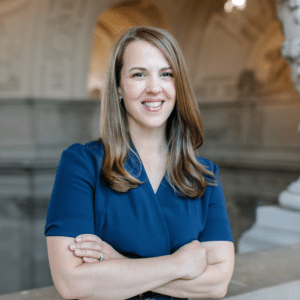
By ProFellow Founder Dr. Vicki Johnson
I recently gave a 2-hour workshop on How to Create an Exceptional Research Proposal, and I covered lots of great questions from students and early career scholars on how to choose the right research topic, how to format a research proposal, how to identify and summarize the “state of the science” and how to choose an appropriate research method. However, my favorite question to cover is: “How do I make my research proposal stand out for a competitive fellowship or grant?” I’ve got three key application tips for research proposals that will help you edge out the competition.
First, I want to mention that if you are seeking fellowships and funding opportunities for research of any kind, be sure to check out the free ProFellow database of fellowships! We have many research fellowships listed in the database that you can review and bookmark, including funding fellowships for undergraduate research, fellowships for dissertation research, postdoctoral research fellowships, and fellowships for research by experienced scholars.
Many of these fellowships award funding to less than 5% of their applicants. To create a research proposal for a funding award that edges out those of other top candidates, here are the three keys to a successful research proposal.
#1 Alignment
Many candidates struggle to win research funding because they apply to fellowships and funding awards that are not a good fit for the research they want to pursue. Every organization and agency that offers funding for research has a broader social impact mission. Research fellowships and grants are not created to support your personal goals of finishing a dissertation or pursue your personal research interests; rather, their purpose is to support new research that is in alignment with the goals and values of the funding body.
So, the very first key to success is to research the mission of the fellowship organization, as well as the specific mission of the funding award. The award you are pursuing might have been established to support research in specific subjects that have not yet been explored or to fund research that would influence public policy and programs in areas of interest to the funding body. Some awards also aim to increase the number of underrepresented scholars in the discipline or create stronger international ties among countries. It’s important to understand the mission of the funding body so that you can make sure that you propose a research project that is aligned with their social impact mission.
You can research the funding body’s mission by looking at the organization’s mission statement, values and history. You can also get clues about the program’s mission by reviewing their specific areas of focus, the partners that they work with, and the research projects that they have funded recently. Once you know the mission, be sure to discuss in your research proposal why your research is aligned with their mission. And if in this process you find your research project is a poor fit, search the ProFellow database for more fellowship opportunities!
#2 Impact
Another mistake that many candidates make is providing too little detail about the specific impact their research will make in the short and long-term. It’s not enough to say that the research will result in a journal article or white paper; it’s critical that you discuss how your research will contribute to the field and who will be helped by this research. Be specific about what valuable new knowledge your research will generate, the positive social outcomes it could influence, and how your research will build upon previous work and establish innovation in the future.
When discussing the outcomes of your research, be sure to identify tangible social impacts rather than things that are truly aspirational. It’s unlikely that your individual research project will result in the end of poverty or the eradication of nuclear weapons (no one project could do this!) but your research may have real, short-term impacts that influence public policy, education, or historical knowledge. Be specific about the social good that your research could produce in the short-term.
#3 Feasibility
Alignment and impact are important to make it to the Finalist stage of a fellowship or grant selection process, but what is absolutely critical for success is that your research proposal is feasible. The number one reason that many excellent research topics are not selected for funding is that the proposal raised too many questions about the proposed methods and feasibility of the research. Make sure that you have the skills, resources, time and partners necessary to ensure that your research can be completed as proposed!
Be sure to carefully consider how much time you’ll need to create and test your data collection tools, recruit research participants, and analyze your data. If you haven’t thought through in detail a specific method and timeline of activities, you should do this first to ensure the scope of your project is appropriate for the length of the funding period. If you are proposing research in a foreign country, do not underestimate how much time it will take to settle into your new country, get introductions to the people necessary for the research, and the level of language skills you’ll need to be successful. If you plan to propose a research method that you have limited to no experience using, it’s also important to make it clear why you have enough knowledge and relevant skills to be successful.
Conclusion
When it comes to competing with top candidates for research funding, the goal is not to wow the selection committee with the most awesome research topic. The most important thing is that you show the selection committee that you have the passion, skills, and resources necessary to produce a research project that has alignment with their mission and will create a tangible social impact.
The ProFellow community is rooting for your success. Best of luck!
Register for my Next Workshop!
Seeking more in-depth guidance? Join me for my next live online workshop: “How to Create an Exceptional Research or Project Proposal”.
Read More
For more fellowship application tips, please see:
- Workshop Replay: How to Create an Exceptional Research Proposal
- How to Win Competitive Fellowships: 5 Secrets of Fellowship Winners
- 5 Feasible Research Methods for Your Fulbright Research Proposal
- How to Add Urgency to Your Fellowship Application
- How to Incorporate Travel in Your Fellowship Project Proposal

Dr. Vicki Johnson is Founder and CEO of ProFellow, the world’s leading online resource for professional and academic fellowships. She is a four-time fellow, top Ph.D. scholar, Fulbright recipient and an award-winning social entrepreneur. She is the Creator and Director of Fully Funded, an award-winning online course and mentorship program for graduate school applicants seeking to find and win full funding.
© ProFellow, LLC / Vicki Johnson 2021, all rights reserved.